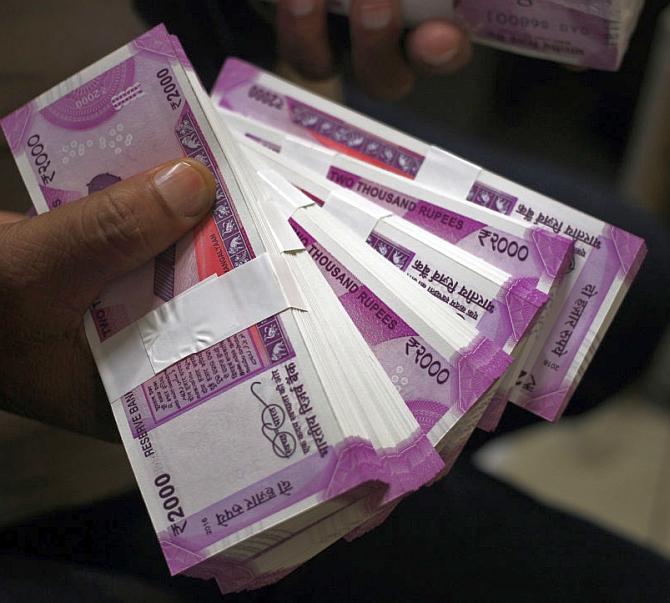Henceforth, political parties can receive only up to Rs 2,000 in cash donations per source as part of a major move proposed in the Budget to cleanse the electoral system of black money.

Announcing this, Finance Minister Arun Jaitley said political parties will be entitled to receive donations by cheque or digital mode from their donors.
As of now, the limit to accept political donations in cash is Rs 20,000.
"As an additional step, an amendment is being proposed to the Reserve Bank of India Act to enable the issuance of electoral bonds in accordance with a scheme that the government would frame in this regard," he said in the Lok Saha.
Under the scheme, a donor could purchase bonds from authorised banks against cheque and digital payments only. They will be redeemable only in the designated account of a registered political party. These bonds will be redeemable within the prescribed time limit from issuance of bond.
The proposal said every political party would have to file its return within the time prescribed in accordance with the provision of the Income Tax Act.
"Needless to say that the existing exemption to the political parties from payment of income tax would be available only subject to the fulfilment of these conditions. This reform will bring about greater transparency and accountability in political funding, while preventing future generation of black money," said Jaitley.
The announcement of the Finance Minister came close on the heels of the Election Commission urging the government to amend laws to ban anonymous contributions of Rs 2000 and above made to political parties.
There is no constitutional or statutory prohibition on receipt of anonymous donations by political parties. But there is an "indirect partial ban" on anonymous donations through the requirement of the declaration of donations under section 29C of The Representation of the People Act, 1951.
But, such declarations are mandated only for contributions above Rs 20,000.
As per the proposed amendment, sent by the Commission to the government, and made part of its compendium on proposed electoral reforms, "anonymous contributions above or equal to an amount of Rs two thousand should be prohibited."
There have been often charges and counter charges between rival parties over use of ill gotten money to fund election campaigns to influence voters and thereby vitiating the poll process.
Poll authorities have been recovering huge cache of unclaimed funds meant for deriving unfair advantage during elections in various states.











 © 2025
© 2025